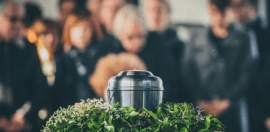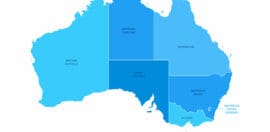A report shows that the pandemic brought us closer but the young and First Nations people face discrimination

24 May 2021 at 8:51 pm
Young people were the only group to experience a drop in their personal wellbeing in 2020
While social inclusion proved to be remarkably resilient during the pandemic, young people experienced a substantial drop in their wellbeing, a new report finds.
The Inclusive Australia Social Inclusion Index is an annual report run in partnership with Inclusive Australia and BehaviourWorks at the Monash Sustainable Development Institute.
The data for this year’s index, collated in December 2020, considered the impact of the pandemic on the levels of prejudice, discrimination and wellbeing of minority and marginalised groups in Australia.
When asked if there were any surprises from the report, Dr Nick Faulkner, lead author of the index and a senior research fellow at Monash University, told Pro Bono News that there were two things that jumped out at him.
“One is the resilience of social inclusion. On the one hand, that was surprising given we were hearing reports of all sorts of really negative things happening last year. I expected there to be bigger declines than what we actually saw,” Faulkner said.
“On the other hand, there’s quite a bit of research that suggests when communities experience disasters, they tend to come together and it tends to be a good thing for the social capital and community.
“The other finding that surprised me is the finding about major discrimination towards young people. It was quite confronting how much that group stood out in comparison to all the other minority groups we looked at. And it does suggest that the pandemic has disproportionately impacted them.”
The report found indicative evidence that major discrimination against young people increased in 2020 (from 44.5 per cent in 2019 to 56.8 per cent in 2020).
The reasons for these increases are unknown but may have been due to the impacts of COVID-19 and the lack of available work.
The report also found:
- Australia’s overall social inclusion score is 61 out of 100, dropping two points due to a lack of contact, advocacy and volunteering in 2020.
- Belonging and wellbeing have improved, partly due to the positive impacts of working from home and access to the internet.
- Young people were the only ones to experience a dip in personal wellbeing in 2020.
- Major discrimination against Aboriginal and Torres Strait Islander people remained high for a second year (49.7 per cent) following a 23 percentage point jump in 2019 (to 52.1 per cent).
- For the third year in a row, everyday discrimination was more common for Aboriginal and Torres Strait Islander people than any other group (51 per cent).
Discrimination in 2020
The spike in discrimination against Aboriginal and Torres Strait Islander people is something Faulkner found concerning. He said he felt it wasn’t an anomaly because he’d seen it for a couple of years now.
“That is something we need to pay more attention to and rectify. Reconciliation Australia has seen something similar in their survey results, which is further evidence that something is going on there,” he said.
Andrea Pearman, CEO of Inclusive Australia, told Pro Bono News that contact was the antidote to prejudice.
“We first need to better understand what’s causing the problem and then find ways to increase positive contact between these groups and the rest of the community to encourage more compassion and inclusive behaviours,” she said.
“We have done some research around the types of things people can do in their lives to be more inclusive. These include being open to, exposing yourself to and educating yourself about different cultures, views and ways of life.
“It also involves calling out exclusive behaviour when you see it and enabling the participation of minority groups in your private and professional circles.”







